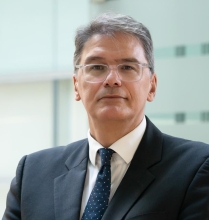International Arbitration Newsletter - December 2019 | Regional Overview: Europe
The most relevant European updates from the global International Arbitration and ADR practice group at Garrigues.
European Union
EU report reveals threatened Energy Charter Treaty claims against Latvia and Spain
In a recent report , the European Commission revealed it had received a threat earlier this year from investors in a Latvian bank and a further two in 2015 relating to reforms to Spain’s renewable energy subsidy regime.
In May 2019, the Commission says that Russian investors with UK nationality issued a threat on behalf of Latvia’s AS PNB Bank, previously called Norvik Bank, in relation to regulatory requirements imposed on it by the European Central Bank (“ECB”) which allegedly impacted on their investments in a Latvian wind power plant, Winergy.
The pending ICSID claim relates to alleged attempts by the head of Latvia’s central bank, to extort money from PNB Bank.
The Commission also revealed that in 2015 it received two “requests for consultation” under the Energy Charter Treaty´s (“ECT’s”) article on dispute resolution from Swiss company Prosisa AG and the Dutch company Risteel Corporation BV, both investors in solar, wind and biomass power plants in Spain and their threatened claims related to Spain’s amendments to its renewable subsidies regime – which have given rise to over 40 investment arbitrations against the state.
The companies argued that the Commission had breached the ECT’s fair and equitable treatment standard by intervening in ECT cases and arguing that the treaty did not apply in intra-EU investment disputes.
Spain
Spain defeats ECT claim filed by Germany´s BayWa
An ICSID tribunal has rejected the bulk of a claim filed by two subsidiaries of Munich-based retail and agribusiness conglomerate BayWa against Spain over renewable energy reforms.
The majority found that Spain had breached the stability guarantee of the ECT through retroactive measures which sought to “claw back” earlier profits made, but rejected all other claims.
The parties were directed to “reach an agreement” on the amount of compensation owed by the state for that breach within three months. If they are unable to do so, the tribunal will issue an award incorporating the latest decision.
Spain defeats ECT claim brought by German investors
An ICSID tribunal has rejected an ECT claim brought by a group of German solar investors including RWE, Ferrostatal and Munich’s municipal electricity supplier Stadtwerke München over the state’s reforms to its renewable energy subsidy regime.
The German investors brought the claim in 2015 over investments they made using a jointly-owned Spanish subsidiary in the Andasol 3 Plant, a solar facility based in the Spanish province of Granada. They claim to have invested €345 million in the project, which could supply energy for half a million people.
Spain raised several jurisdictional objections to the claim. The tribunal rejected some, but dismissed the claim on the merits.
It is the third time Spain has completely escaped liability in one of the 50 or so cases it has faced over reforms to its renewable subsidies regime.
Spain offers energy incentives to avoid ECT claims
Spain has approved a royal decree which aims to end US$7.3 billion in pending treaty claims over renewable energy reform by offering investors economic incentives that can only be accessed if the cases are dropped.
The text of the royal decree had been agreed by the state’s Council of Ministers and must now be approved by Congress to become effective. If passed by Congress, the latest legislation would allow renewable investors to maintain a 7.39% rate of return for the next two regulatory periods, which ends in 2031. Under the current regime, investors will see the rate of return on their investments fall from 7.39% to 4.5% in 2020.
However, the higher rate of return cannot be claimed by any investor that is entitled to compensation under an arbitration award or judgment relating to the renewable energy reforms, or those investors with pending arbitration or judicial proceedings over the same reforms.
If investors want to retain the right to claim compensation in arbitration or litigation under the new law, they can either: stick with the current system or switch to a formula-based method for determining profitability – set at 7.1% – that will be reviewed every six years.
Spain seeks to annual another set of solar awards
Spain is seeking to annul a €34 million ICSID award won by Luxembourgish and French private equity investors Cube Infrastructure and Demeter and an award ordering it to pay damages to a UK subsidiary of a private equity fund manager InfraRed Environmental Infrastructure over changes to the country’s renewable energy subsidy regime.
In both cases, the grounds for Spain’s annulment petition are presently unclear. In the first award, the tribunal awarded Cube and Demeter nearly €34 million plus interest and costs, following a decision on jurisdiction and liability and a partial award on quantum where the panel dismissed Spain's submissions on the application of the European Court of Justice's March 2018 ruling on intra-EU investment arbitration in Achmea.
In its award, the tribunal found that Spain had defeated the claimants' legitimate expectations regarding the subsidy regime in violation of the ECT's fair and equitable treatment standard.
In the second case, Spain is understood to have raised a jurisdictional objection based on the European Court of Justice's March 2018 ruling on intra-EU investment arbitration in Achmea – as it has done in several other solar cases. Infrared and the other investors filed their claim in 2014, three years after InfraRed invested in two thermosolar power projects in the regions of Andalucia and Extremadura.
Switzerland
Switzerland hit with first ever treaty claim from Seychellois investor
Seychelles entity Human Rights Defenders (HRD) has filed a notice of dispute threatening to bring a US$300 million ICSID claim against Switzerland on behalf of Italian investors affected by measures that allegedly devalued property prices and obstructed real estate developments in the 1990s.
The notice purports to trigger a six-month waiting period before the filing of an ICSID claim under the Switzerland-Hungary bilateral investment treaty. HRD argues it is entitled to rely on the dispute resolution provisions in the Hungary BIT pursuant to a most-favoured nation clause in an 1868 treaty on consular relations between Switzerland and Italy.
In the notice, HRD says the investors were “severely affected” by measures beginning with a 1989 Swiss federal decree that imposed a retroactive ban on the sale of property within five years of its purchase. The notice says the ban was in contravention of a 1988 referendum.
HRD also complains of the decision of the Swiss National Bank to aggressively raise its discount rate, prompting an increase in mortgage rates.
The Seychelles company says the measures are attributable to the Swiss state and had the underlying purpose of devaluing property prices and obstructing real estate developments over the 1990s, amounting to an indirect or creeping expropriation.
Contacts




-
+52 55 1102 3570
-
+57 601 326 69 99



